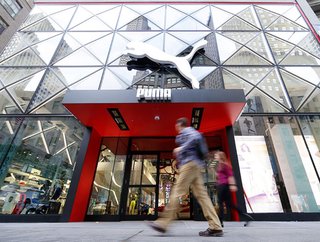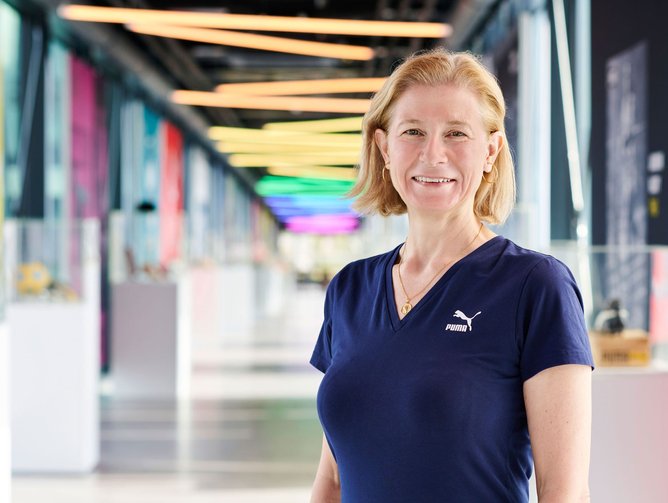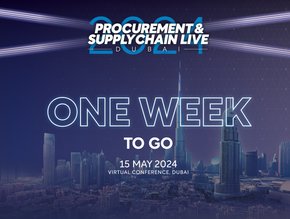Puma’s ‘Forever Better’ Sourcing Strategy

Sportswear giant Puma is following a strategy called ‘Forever Better’ to improve the sustainability performance in all areas including their sourcing and wider supply chain. The plan is already delivering results with 7 out of 10 products now being sourced from greener materials according to their most recent Sustainability Report 2022. The target is to make 9 out of 10 products using better materials as soon as 2025.
“Our Forever Better strategy aims to make PUMA better across the entire value chain, whether it comes to materials, carbon emissions, circularity or human rights,” says Anne-Laure Descours, Chief Sourcing Officer at Puma. “We know there is still a lot of work to be done, but we are encouraged by the progress we have made last year.”

Puma and the better use of materials
There has been progress in the strategy to procure more sustainable materials to produce products from, including 100% of all leather, 99.8% of all cotton and 99% of all paper and cardboard packaging used by the company were sourced in more sustainable versions such as, Leather Working Group certified leather, Better Cotton or FSC certified or recycled paper and cardboard.
This use of better materials such as cotton from certified sources and other recycled products has allowed the company to improve its environmental impact across product ranges. Since the 2017 baseline figure, the company have been able to cut C02 emissions from materials by nearly a third.
Aside from sourcing raw materials, the project has also seen developments in other procurement functions, with 100% renewable energy being used in Puma offices and premises, and the investment in electrifying car fleets. These steps to source energy have aided in a 86% cut in carbon emissions from its 2017 baseline.
Suppliers are also being supported in the value chain, with some producing renewable energy, or moving boilers from fossil fuel power to biomass technology. By installing large-scale solar power systems at key suppliers and the purchase of renewable energy certificates, Puma core suppliers, who are responsible for around 80% of production volume, have more than doubled their use of renewable energy in twelve months.
What is the Puma Re:Fibre project?
One use of sourcing recycled products is the Re:Fibre project, which allows Puma to use technology to transform old garments and factory cut-offs into new fabrics that can be used to make football jerseys and other products. reduce textile waste, diversify the source of recycled polyester, and move towards a more circular business model. A four step process shreds, melts, spins and knits the material to produce a new product.
“Our wish is to have 100% of product polyester coming from textile waste. Textile waste build-up in landfills is an environmental risk,” says Descours. “Rethinking the way we produce and moving towards a more circular business model is one of the main priorities of our sustainability strategy.”
Read more about Puma’s sustainability report
Read how Jaguar Land Rover are working with their suppliers to achieve their net-zero goals.
Make sure you check out the latest edition of Procurement Magazine and also sign up to our global conference series - Procurement & Supply Chain LIVE 2024
**************
Procurement Magazine is a BizClik brand
- Big Lots: How Asia Buying Offices will Cut Procurement CostsProcurement Strategy
- TotalEnergies: Playing a Key Role in Sustainable ProcurementProcurement Strategy
- Walmart Project Gigaton: Helping Suppliers to Cut EmissionsSustainable Sourcing
- Carlsberg: A Transparent Value Chain Helping ESG GoalsSustainable Sourcing






